As the Government of National Unity marks 100 days in office, South Africa’s Home Affairs Minister Leon Schreiber today outlined an ambitious plan to modernise the Department of Home Affairs’ services over the next five years.
The project, called Home Affairs @ Home, aims to digitize certain civic, security and immigration services by 2029, using advanced biometric tools and automated systems. The idea is that “no one has to visit a Home Affairs office in-person again to access routine services,” explains the Department of Home Affairs (DHA) press release.
“All of the department’s services must become fully automated, digitised and offered online at the fingertips of our clients, from the comfort of their own homes. Rather than going to Home Affairs, our vision under the Government of National Unity is to bring Home Affairs to you.”
Among the initiatives unveiled today is the introduction of an Electronic Travel Authorization (ETA) for travelers to South Africa.
Over time, the ETA will “replace paper-based visas” in South Africa
The South African authorities announce that, instead of having to go through red tape and manual procedures, travelers wishing to visit South Africa will have to create a profile on a secure online platform in order to submit an Electronic Travel Authorization (ETA) application.
“The application must be adjudicated instantly, only requiring human intervention if an anomaly is detected by the machine,” says the South African Department of Home Affairs.
According to the Department of Home Affairs, as part of the ETA application process, travelers will be required to provide their biometric data to the Department of Home Affairs. “Over time, this system will replace paper-based visas by issuing the traveller with a unique digital code linked to their passport information.”
On arrival in South Africa, international visitors will be required to scan their ETA code and provide another copy of their biometric information, which will then be checked against their passport and the information provided at the time of the electronic travel authorization application.
“Visitors who want to extend their stay or modify their status, will be able to submit applications through the same secure online platform for instant adjudication,” the department adds.
Finally, the DHA explains that by integrating biometric information, local and global databases and travel authorizations with the movement control system at all ports of entry under the border management authority, the risk management engine will alert immigration officers in real time when a traveler has not left the country before their authorization expires. “This will make it impossible for travellers who overstay to evade detection, while providing biometric information on all foreigners in the country to enable instant verification of their status.”
Who will be affected by the ETA for travel to South Africa ?
For the time being, the South African authorities have not detailed which types of travelers will be required to apply for an ETA, except to say that this document will “over time” replace the paper visa.
It’s a safe bet that South Africa will take its cue from countries that already have, or will soon have, an electronic travel authorization system, and will also require this formality for its visa-exempt visitors.
The United States (ESTA), Canada (ETA), New Zealand (NZeTA), Israel (ETA-IL) and the UK (UK ETA) all require their visa-exempt international visitors to apply for an electronic travel authorization prior to travel.
Next year, the European Union will also launch its ETIAS authorization. Ukraine and Japan are also working on the introduction of an ETA system.
Visa-exempt travelers to South Africa
Citizens of several countries are exempt from visa requirements for short-term tourist or business stays in South Africa.
Here is the list of countries whose citizens can enter South Africa without a visa for between 30 and 90 days:
- 90-day visa-free entry to South Africa: Andorra, Argentina, Australia, Austria, Belgium, Botswana, Brazil, Canada, Chile, Czech Republic, Denmark, Ecuador, Finland, France, Germany, Ghana, Greece, Iceland, Ireland, Israel, Italy, Jamaica, Japan, Kenya, Liechtenstein, Luxembourg, Madagascar, Malaysia, Malta, Monaco, Namibia, Netherlands, New Zealand, Norway, Palestine, Panama, Paraguay, Portugal, Qatar, Russia, Saint Vincent and the Grenadines, San Marino, São Tomé and Príncipe, Saudi Arabia, Seychelles, Singapore, Spain, Sweden, Switzerland, Tanzania, Trinidad and Tobago, Tunisia, United Arab Emirates, United Kingdom, United States, Uruguay, Venezuela, Zambia and Zimbabwe.
- 30 days visa-free in South Africa: Angola, Antigua and Barbuda, Bahamas, Barbados, Belize, Benin, Bolivia, Cape Verde, Costa Rica, Cyprus, Eswatini, Gabon, Guyana, Hong Kong, Hungary, Jordan, Lesotho, Macau, Malawi, Maldives, Mauritius, Mozambique, Peru, Poland, South Korea, Thailand and Turkey.
The electronic visa (e-Visa) for entry into South Africa
South Africa launched its electronic visa system (e-Visa) in November 2019. This system is designed to facilitate the entry of international travelers, notably by enabling nationals of certain countries to obtain a visa online, without having to visit a South African embassy.
The e-Visa program has been rolled out progressively, and is currently available for the following 34 countries, and aims to simplify entry formalities for tourism and business:
- Albania, Algeria, Belarus, Bulgaria, Cameroon, China, Comoros, Congo, Côte d’Ivoire, Croatia, Cuba, Democratic Republic of Congo, Egypt, Ethiopia, Ghana, Guinea, India, Indonesia, Iran, Kenya, Liberia, Lithuania, Mali, Mexico, Morocco, Niger, Nigeria, Pakistan, Philippines, Romania, Saudi Arabia, Senegal, Slovakia and Uganda.
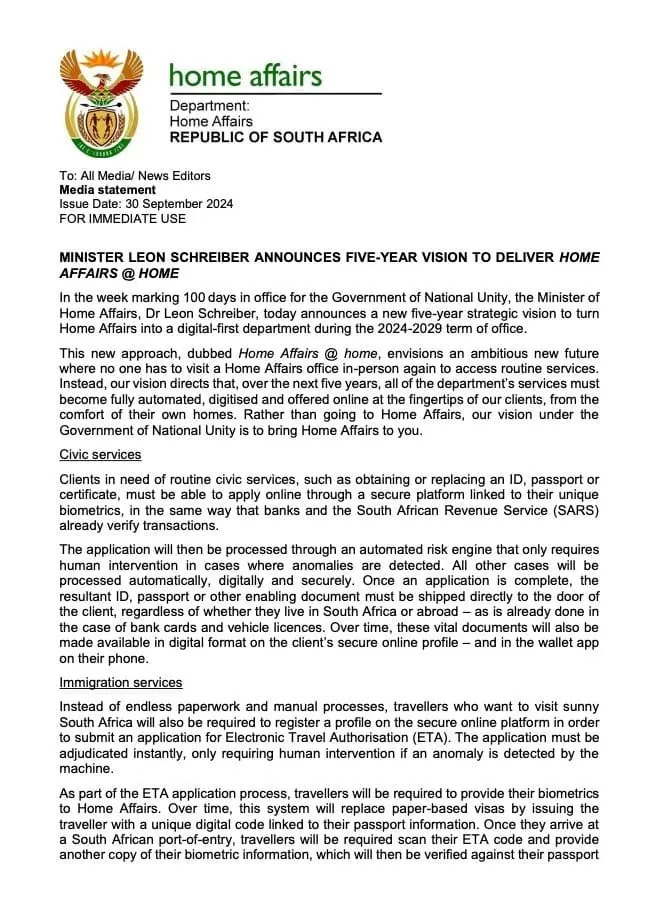
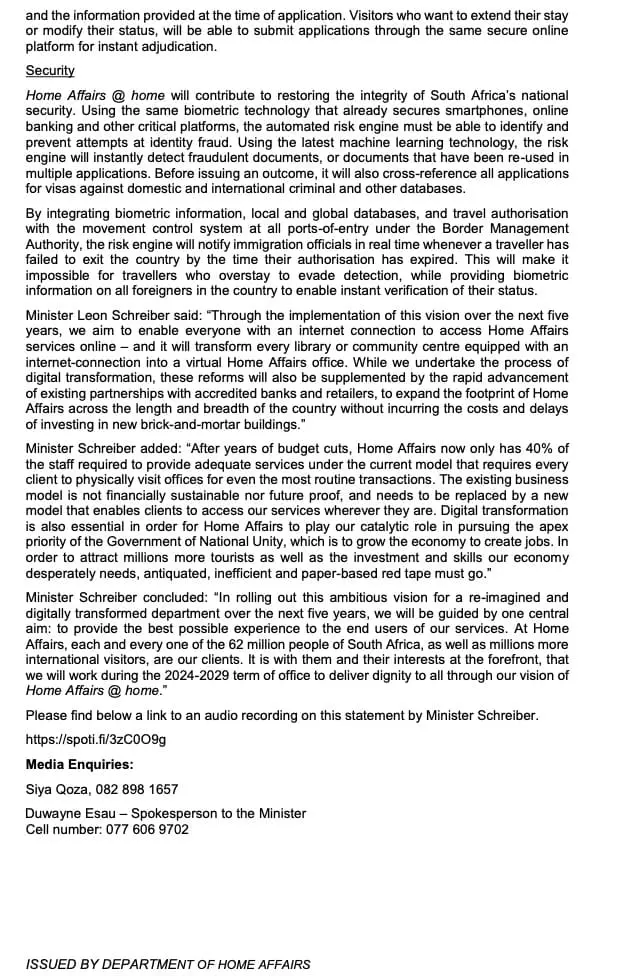
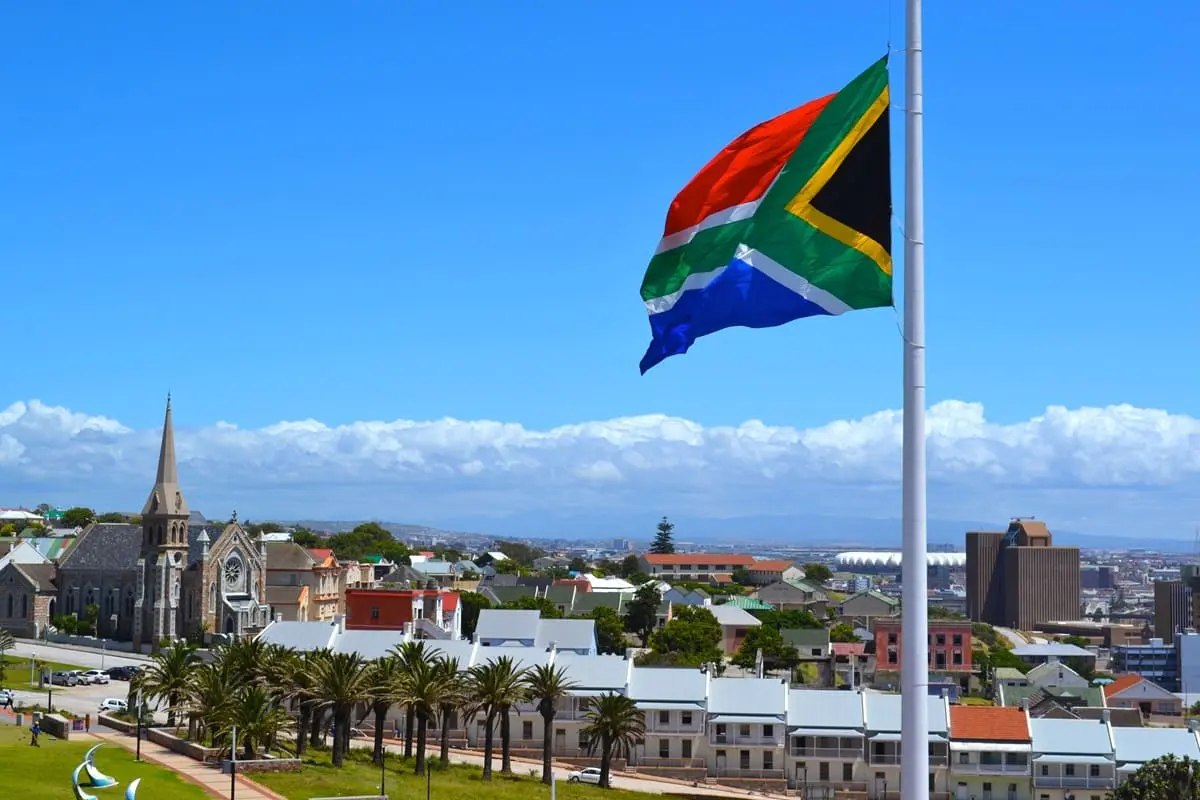

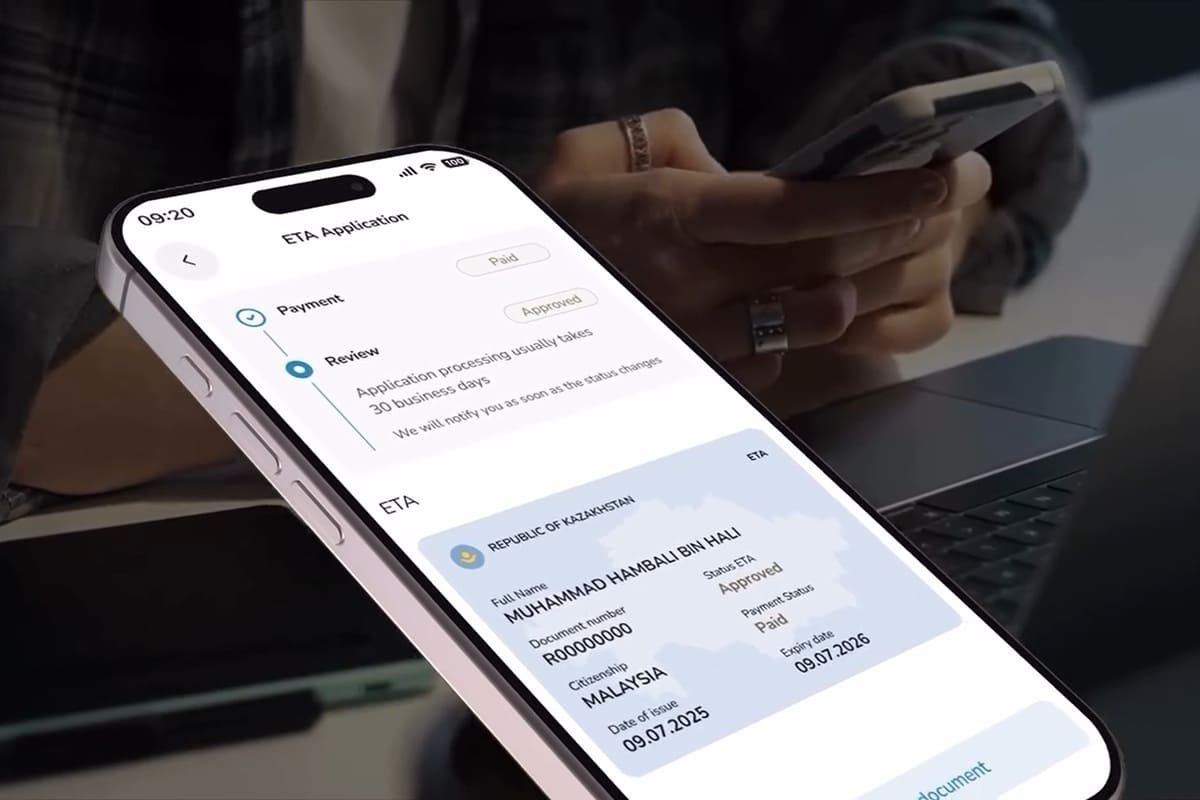



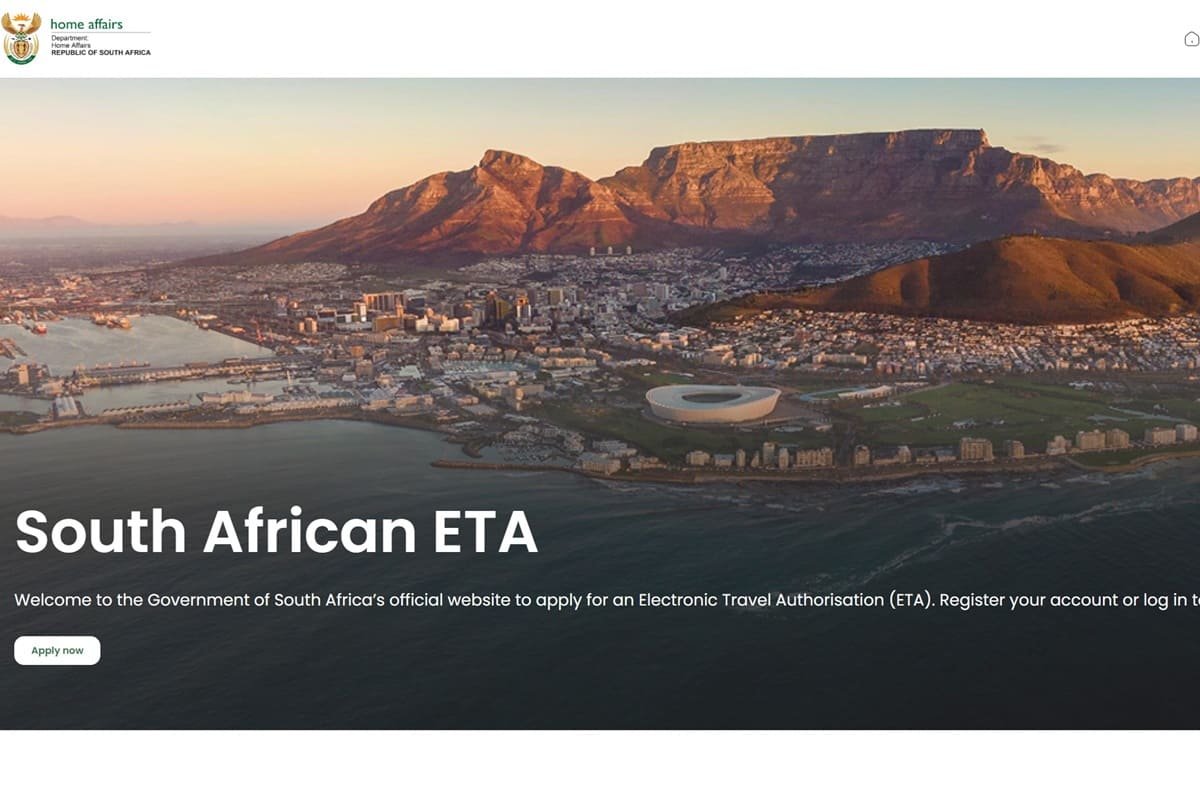

Do permanent residents, returning from abroad, to SA, need an SA ETA?
Hey Sir/Madam,
good evening, hope my email finds you well. I am writing to enquire about South Africa. I’m a United Kingdom Refugee and I hold a UK Refugee travel document and a Biometric Residence Permit, I want to visit and tour south Africa, do I require a visa? if yes, please how should I do it, if no, please what requirement are needed. I have tried all sorts of numbers, even I went to the South African home office I didn’t get any help. I will be grateful to hear your response.
thank you,
kind regards